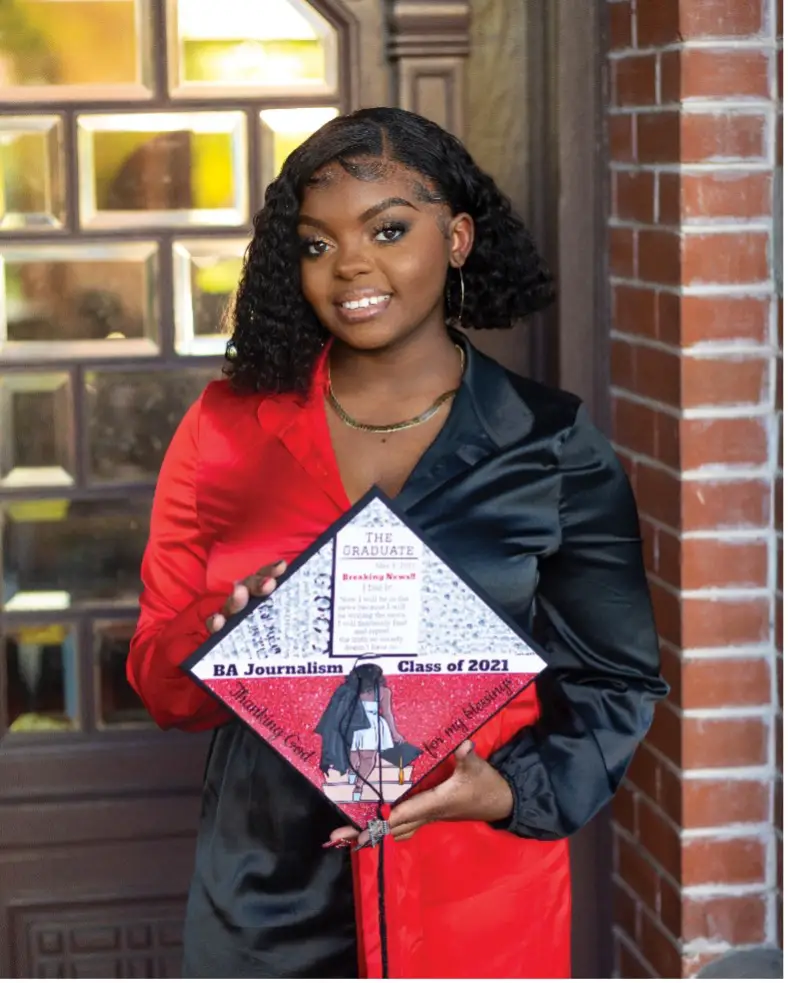A lack of diversity still plagues the film and television industries; children’s shows are no exception, but “Karma’s World” is a fairly new Netflix series that all Black girls will be able to relate to.
“Karma’s World” is a fun animation created for children about a young Black girl named Karma Grant who has just started middle school and uses music to find her voice and overcome difficult situations. The bright, talented and lively character confidently sports her curly ‘fro, purple metallic pants, pink and purple sneakers and a peach T-shirt underneath her green jacket.
Christopher Bridges, better known as the famous American rapper Ludacris, created and produced the 15-episode series with the help of his oldest daughter, Karma Bridges, who the main character in “Karma’s World” is named after. In terms of representation, the characters are predominantly voiced by Black voiceover artists. Black children rarely see shows that are created for them by African Americans, and the opportunity to see a character on screen who looks like them could boost their confidence and teach them how to love themselves at a young age.
For Bridges, the ultimate goal for his new show is to promote the self-confidence of kids around the world and teach them how to embrace themselves despite their differences.
Each 13-minute episode of the series effortlessly communicates ways for children to navigate various social issues that they are likely to encounter at a young age. Some of the lessons covered throughout this series include helping others, having a disagreement with a friend, dealing with bullies, lying for personal gain and believing in oneself when others do not. Among all of the important social issues that are discussed in “Karma’s World,” there are two episodes that will particularly resonate with young Black girls on a more personal level.
In the first episode that became available on Netflix on Oct. 15, an excited Karma makes up freestyle raps as she walks to school with Winston, her best friend, and Keys, her little brother. She also becomes fast friends with a girl named Switch, who shares her interest in music. However, Karma’s excitement quickly vanishes when one of her classmates states that the name Karma is weird and other kids agree.
The teasing causes Karma to feel ashamed of her name. After school, Karma returns home and tells her parents that she wants a normal name like Carrie, similar to three other girls in her class, rather than Karma, because she is convinced that Karma is a weird name.
Reality is no different. As if the difference in skin color were not enough, children of color, especially African Americans, often get treated differently because of the uniqueness of their names. Many Black parents may just want to give their melanated children a sense of individuality by giving them names that are not as common, but other parents may be following decades of tradition.
During and after slavery, African Americans were robbed of their culture and stripped of their names. They adopted back their African names in a slight attempt to preserve their Black heritage. The first “Karma’s World” episode encourages Black children to learn the meanings of their names and use them to their advantage.
Another episode that stands out and was written specifically for Black girls focuses on the topic of natural hair, which is an important subject in Black culture. At the beginning of the episode titled “Hair Comes Trouble,” Karma invites her friends over for a sleepover, and everything goes great until her friends begin to interrogate her about Black hair and her bonnet. They proceed to touch her hair without permission — leading Karma to snap on her friends.
Even if non-Black individuals are curious about a particular hairstyle done on an African American person, the first instinct should never be to touch the person’s hair without receiving permission first. African Americans are human like everyone else, and when people touch their hair without asking, it can often make an individual feel like an animal in a petting zoo, which is both demeaning and uncomfortable.
The following morning, Karma attempts to have a difficult conversation with her friend Switch. Karma tries to carefully explain that she felt uncomfortable when each of the girls decided to feel her hair without permission, but Switch fails to understand where Karma is coming from and tells her that she may be overreacting. Karma ends the conversation but begins to contemplate whether she should straighten her hair to be like everyone else.
At a young age, Black girls are taught to always go to bed with a satin-lined bonnet, and they learn all the different ways that they can style their hair without damaging their crown of curls. However, all Black girls are likely to experience a phase in life where they struggle to embrace their natural hair.
Living in a society where afros and kinky styles have often been frowned upon, it may take Black girls a little longer to appreciate their natural hair. A Black girl’s hair is her crown and often a confidence booster. “Karma’s World” does an outstanding job of showing both Black girls and their parents effective ways to address and overcome uncomfortable situations.
While “Karma’s World” touches on some very important issues specifically related to Black culture, it is by no means an animated show only for Black children. Non-Black children could also learn a lot from the show. Some of the biggest lessons that every child can learn from the series are how to respect the culture of others and the importance of accepting everyone despite their flaws.
“Karma’s World” is a must-see for adults and children alike. The family-friendly series is educational, entertaining and uplifting all at the same time and should be added to the queue for the next family night.

















